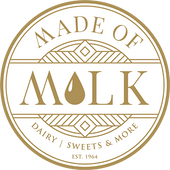The Milk Mythbusters: Unveiling the Truth About Dairy
In the realm of nutrition, dairy products have long been a subject of heated debate, often portrayed as either a pillar of health or a contributor to various ailments. This blog aims to cut through the noise and unravel the truth about dairy,debunking common myths and shedding light on the latest scientific evidence surrounding its benefits and potential drawbacks.

Myth 1: Dairy is essential for calcium intake
While dairy products are a rich source of calcium, they are not the only source. In fact, many plant-based foods, such as leafy green vegetables, legumes, and fortified soy milk, also provide significant amounts of calcium. For individuals who choose to avoid dairy, there are plenty of alternative ways to meet their calcium needs.
Myth 2: Dairy causes osteoporosis
Contrary to popular belief, studies have shown that dairy consumption may actually help to protect against osteoporosis, a condition characterized by bone loss. The calcium and vitamin D found in dairy products play a crucial role in maintaining bone density and reducing the risk of fractures.
Myth 3: Dairy contributes to heart disease
The link between dairy consumption and heart disease has been extensively studied, with results often inconclusive.However, recent research suggests that the type of dairy fat may play a more significant role than overall dairy intake.Full-fat dairy products have been associated with an increased risk of heart disease, while low-fat and fat-free dairy products may offer protective benefits.
Myth 4: Dairy increases mucus production and worsens allergy symptoms
Although there is some anecdotal evidence to support this claim, scientific studies have not found a consistent or definitive link between dairy consumption and worsening allergy symptoms. Some individuals with lactose intolerance may experience digestive discomfort after consuming dairy, but this is not a true allergy.
Myth 5: Dairy consumption is cruel to animals
Modern dairy farming practices have often been criticized for animal welfare concerns. However, it is important to recognize that there is a wide range of farming practices within the dairy industry, with some farms prioritizing animal welfare while others may prioritize efficiency and production at the expense of animal well-being.
Unveiling the Truth: A Balanced Perspective
The reality is that dairy products, like any food, can be part of a healthy diet when consumed in moderation and as part of a balanced overall dietary pattern. For those who can tolerate dairy, it can be a valuable source of calcium, vitamin D, and other essential nutrients. However, it is crucial to choose dairy products wisely, opting for low-fat or fat-free options and considering the ethical sourcing of dairy products.
In conclusion, the world of dairy is complex and multifaceted, with a rich history and a significant impact on human nutrition and culture. By debunking common myths and exploring the latest scientific evidence, we can approach dairy consumption with a more informed and balanced perspective, making informed choices that align with our individual health goals and values.
